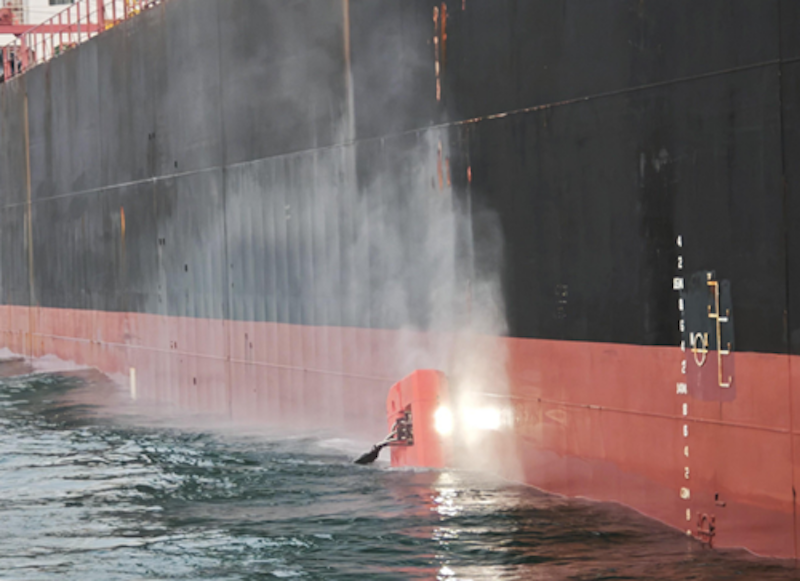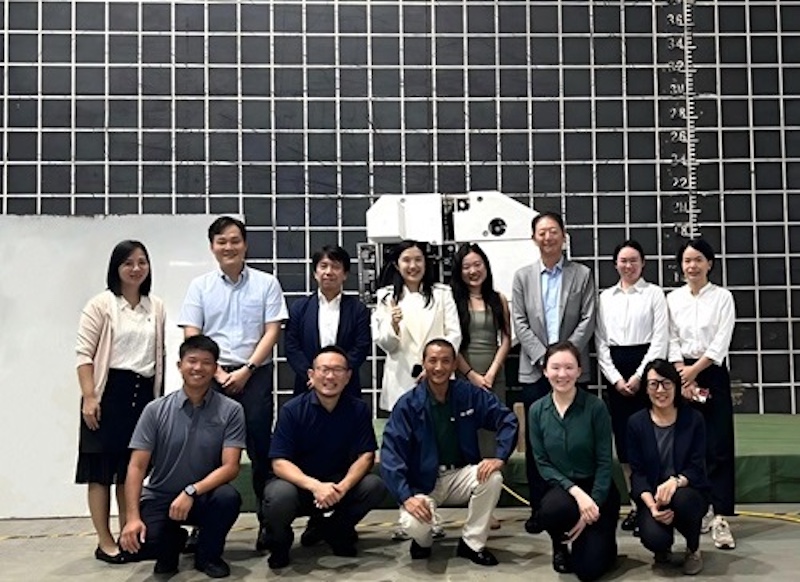Traditional hull cleaning is labor-intensive, risky, and expensive. Human divers or remotely operated vehicles struggle with underwater conditions, strong currents, and the challenge of accessing every part of a large vessel’s hull.
That is the problem Japan’s NYK Line – one of the world’s largest shipping companies – is tackling through an expanded partnership with Hong Kong-based Neptune Robotics.
The two companies have signed a new Memorandum of Understanding to roll out Neptune’s AI-driven hull-cleaning robots across NYK’s global fleet of more than 820 vessels.
Robots at work beneath the waterline
Unlike diver-based or conventional ROV methods, Neptune’s robotic cleaners operate autonomously above and below the waterline, day and night, and in both clear and murky waters.
They can withstand currents of up to 4 knots – triple what human divers can manage – and clean a full-draft Capesize vessel within 24 hours, three to five times faster than traditional methods.
The robots are designed to preserve hull coatings, a key consideration for shipowners. Neptune says its system has already won endorsement from major global paint manufacturers.
Commercial payback and decarbonisation link
NYK has worked with Neptune since 2022, making it an early adopter of robotic hull cleaning. From those deployments, the companies report fuel savings of up to 10 times the cost of human-worker cleaning.
That commercial case is driving the expanded rollout, but both companies also highlight the emissions benefit: cleaner hulls reduce drag, which in turn cuts fuel consumption and greenhouse gas output.
Hidehiko Sato, general manager of ship business group, NYK, says: “We are impressed by Neptune Robotics’ highly efficient hull cleaning technology which maximizes protection to hull coatings and contributes to fuel savings and GHG emissions reduction, as well as compliance with environmental regulation.
“Through this partnership, we aim to create future business opportunities by combining our strengths. We hope to contribute to decarbonization not only across our fleet but also within the broader shipping sector.”
Elizabeth Chan, CEO of Neptune Robotics, says: “NYK has been one of the earliest and most forward-looking adopters of robotic hull cleaning.
“Their leadership has allowed us to demonstrate how automation can deliver real ROI and emissions reductions at scale. Together, we are proving robotics is a practical, scalable pathway to decarbonisation.”
Strategic investment
As part of the deal, NYK also participated in Neptune’s recent $52 million Series B funding round, led by Granite Asia. This investment aligns NYK financially with the scaling of Neptune’s technology and supports its entry into new markets, including Japan.
Industry implications
The expanded partnership sends a signal that robotic hull cleaning is moving from pilot projects into mainstream fleet operations. If proven at scale, it could reset industry benchmarks for vessel maintenance, undercutting traditional diver-based services and creating new standards for efficiency.
For NYK, a Japanese company with a global fleet spanning bulk carriers, container ships, car carriers, tankers and LNG vessels, the deal offers a way to improve fleet performance, lower operating costs, and strengthen its sustainability profile.
By committing to robotics at this scale, NYK and Neptune are betting that automated hull cleaning will not only deliver immediate cost savings but also become an essential technology for the shipping industry’s long-term competitiveness.


